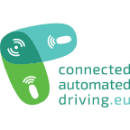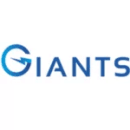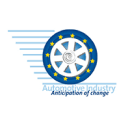EU projects

EFFEREST
EFFEREST is an EU-funded project with 11 partners spanning the EV value chain.
The project employs a co-design framework featuring a user-centric energy management system. This system integrates adaptive digital twins, model-based optimization, predictive control, and AI, utilizing V2X, fleet data, and historical information. Innovations in powertrains, batteries, and HVAC systems are demonstrated for energy efficiency, comfort, safety, and affordability.
EFFEREST aims to enhance Europe’s competitiveness in digital technologies, positioning EVs for global appeal.

FAME
The FAME (Framework for coordination of Automated Mobility in Europe) Project funded by the European Commission under Horizon Europe is an extension of the previously concluded ARCADE (Align Research & Innovation for Connected and Automated Driving in Europe) project.
The 23 consortium partners project aims at directly supporting the work of the CCAM Partnership and the European Commission for the identification of gaps and future needs for R&I as the sharing of knowledge, data and experiences is the requirement for the development of Connected and Automated Driving (CAD).

GIANTS
The GIANTS (Green Intelligent Affordable Nano Transport Solutions) project strives to transform affordable mobility in emerging and advanced markets through an innovative electric vehicle platform.
Unlike traditional skateboard solutions, GIANTS offers modularity, scalability, and interoperability for L5, L6, and L7 light electric vehicles. Featuring a scalable e-drivetrain, standardized vehicle control system, roof solar panels, and a vehicle configuration tool, the project aims to lower electric vehicle ownership costs, provide climate-neutral urban transport, enhance air quality, and position the EU as a global transport leader.
Together with CLEPA and other 22 partners, GIANTS seeks to demonstrate prototypes to raise awareness and encourage adoption by major manufacturers.

IRISS
The international ecosystem for accelerating the transition to Safe-and-Sustainable-by-design materials, products and processes.
IRISS is a three-year project, start date 1st of June 2022, funded by the EU’s framework programme for research and innovation, Horizon Europe.
It has a budget of €4.3 million, of which approximately €3.5 million come from the EU, as well as additional funding through the University of Birmingham and Swiss Federal Laboratories for Materials Science and Technology. The consortium consists of 20 partners, including European research institutes, trade associations, companies, authorities and universities, as well as National Technology Platforms within SusChem.
IRISS will support companies, both with knowledge and through the implementation of research, and contribute to guiding principles for the development of life cycle thinking in material and product design.

Liberty
Lightweight Battery System for Extended Range at Improved Safety.
To design an electric vehicle battery that offers 500 km of range before ultra-fast recharging in just 18 minutes – and all this combined with a battery life expectancy in excess of 300,000 km, or 20 years.
The European project LIBERTY will work towards this milestone along with CLEPA and 14 additional European partners ranging from Universities providing fundamental research, leading technology giants, TIER suppliers, up through the OEM level. Mercedes-Benz AG, one of the partners of this strategic Horizon 2020 EU project for sustainable mobility, will integrate the batteries developed by LIBERTY in one of its electric vehicles to demonstrate the technological feasibility of all LIBERTY innovations.
The batteries to be developed in LIBERTY will provide a range increase of up to 25%, thus allowing driving up to 500 km without the need for recharging, with improved and standardised battery safety and sustainability at the core of the project.

MODI
The European Commission, through the Horizon Europe framework program, has awarded a funding grant to a 29-partner strong consortium, to test and validate the implementation of CCAM solutions for real-logistics operations.
The MODI project will demonstrate automated heavy-haul vehicles without safety drivers use cases on the motorway corridor from Rotterdam in the Netherlands to Moss in Norway, crossing four national borders and demonstrating terminal operations at four different harbours and terminals en route. Automated transport will significantly contribute to improving European transport and logistic chains. The MODI research project will make substantial steps toward identifying and resolving barriers preventing this from coming true.

Respect
RESPECT takes it name from flexible, safe & efficient REcycling of Li-on batterieS for a comPetitive, circular, and sustainable European ManufaCTuring industry.
RESPECT is a four-year project, started in June 2022, funded by EU under Horizon Europe Research and Innovation program and the BATT4EU Partnership, which aims to contribute to the development of the battery supply chain in Europe. Coordinated by Orano Mining the RESPECT project includes 15 full partners and 3 associated partners from 9 countries.
The RESPECT project aims at transforming the batteries’ recycling process and at opening new sustainable and circular markets in Europe along the Li-ion batteries value chain, thus reinforcing security of supply and its strategic autonomy.

Synergies
SYNERGIES is an EU-funded project with 33 partners, who will collaborate on a new open-source platform that displays collected data for testing and validating self-driving vehicles in Europe.
The key objectives of the SYNERGIES-project include:
- Definition of user-requirements
- Optimising data collection and analysis
- Development of training material and piloting report
CLEPA will contribute to the project with promotional and dissemination efforts through its network of stakeholders.

URBANIZED
URBANIZED is an EU initiative that aims to bring modular and flexible solutions for urban-sized zero-emissions last-mile delivery and services vehicles. Sustainable last-mile delivery is growing rapidly, making the management of logistics flows in urban areas a more complex process. With higher demand for flexibility in new solutions to optimise overall transport capacity, reduce operational costs, and limit negative impacts such as health and safety, logistics operators should not have to choose between “one size fits all” and “design for purpose”. URBANIZED develops and demonstrates the next generation of modular vehicle architectures for urban-sized commercial e-vehicles, satisfying design principles of optimisation and right-sizing vehicles for their mission.
The multi-disciplinary consortium of 9 partners from 6 EU countries involves all relevant actors from the value chain, from academic, to industrial (parts and vehicle manufacturers) and logistics operators, so our solutions can drive the sustainable urban transition by making zero-emission vehicles the best option for everyone.

VERA
The EU-funded VERA project will develop, optimise, and demonstrate innovative tailpipe retrofit solutions to address particle and NOx emissions, particularly considering NH3 emissions. The project will ensure system adaptability with a central development methodology, allowing fast and accurate optimisation for each application. In addition, VERA will design and demonstrate brake retrofit solutions, applicable both as first installation on new vehicles as well as replacement parts. The combination of filtration systems with innovative discs and pads aims at maximum brake emission reduction of road vehicles, while particles from metro applications will be addressed with a filtration system and properly machined pads.

Anticipation of Change in the Automotive Industry
The European project “Anticipation of Change in the Automotive Industry” started its second phase in December 2009. Co-financed by the EC DG Employment and Social Affairs it will run until the end of October 2010. The main objective is to gather all relevant stakeholders to review the evolution of the automotive sector, to open a dialogue between the different actors and to help them to adapt to the change.

ARCADE
Aligning Research & Innovation for Connected and Automated Driving in Europe
ARCADE is a Coordination and Support Action that coordinates consensus-building across stakeholders for sound and harmonised deployment of Connected, Cooperative and Automated Driving (CAD).
ARCADE supports the commitment of the European Commission, the European Member States and the industry to develop a common approach to development, testing, validation and deployment of CAD in Europe and beyond.
The ARCADE project will run for three years and aims to establish a joint stakeholders forum in order to coordinate and harmonise automated road transport approaches at European (e.g. strategic alignment of national action plans for automated driving) and international level (in particular with the US and Japan).

DRIVES
Development and Research on Innovative Vocational Educational Skills.
Digital and other key technologies are reshaping the foundations of industry and the wider global economy. This offers tremendous opportunities for innovation, growth and jobs, but it also requires skilled and adaptable individuals who are able to drive and support change.
The Development and Research on Innovative Vocational Educational Skills project (DRIVES) will deliver human capital solutions to supply chain SMEs through the establishment of an Automotive Sector Skills Alliance, covering all levels of the value chain (vehicle production, automotive suppliers and automotive sales and aftermarket services). Through the network of the partners, DRIVES outcomes will be disseminated EU-wide to more than 300 associations, bringing together more than 270,450 companies of all sizes, representing over 7 million workers.
The Project draws on the expertise and input from 11 entities, chaired by ACEA, supported by CLEPA, ETRMA – and selected GEAR 2030 members – will be responsible for setting the industrial strategy and direction for the project.
For further information, please contact Pilar Pérez at p.perez@clepa.be or Nathalie Gminder at gminder@clepa.be

ENSEMBLE
European Truck Platooning.
Platooning technology has made significant advances in the last decade, but to achieve the next step towards deployment of truck platooning, an integral multi-brand approach is required. Aiming for Europe-wide deployment of platooning, ‘multi-brand’ solutions are paramount. It is the ambition of ENSEMBLE to realise pre-standards for interoperability between trucks, platoons and logistics solution providers, to speed up actual market pick-up of (sub)system development and implementation and to enable harmonisation of legal frameworks in the member states.
ENSEMBLE wants to communicate the economic, societal and environmental impact of decisions surrounding platoon forming and dissolving. ENSEMBLE also strives to modernize the transport system by finding an optimal balance between fuel consumption, emission level, travel times and impact on highway traffic flow, resulting in reduced impacts on climate change, air pollution, noise, health and accidents.

eSafety Challenge Project
The eSafety Challenge is a European Commission-funded project that focuses on innovative vehicle safety technologies and the potential lives to be saved on the roads through increased deployment of these technologies. An important obstacle for deployment is the lack of awareness among both policymakers and end users, which is affecting policy support, user expectations and readiness for change.

EUNICE
The main objective of this project is the design, development and validation of a complete in wheel motor assembly prototype (electric motor, power electronics, reduction gear, structural parts and wheel), based on a McPherson corner suspension topology, to meet the defined car top level specifications. The main technical risks associated with the use of an in-wheel concept are the thermal stress under extreme operation conditions, vehicle dynamics, driveability, safety and durability.

European Sector Skills Council for the Automotive Industry
The European Sector Skills Council for the Automotive Industry is an 18-month project, funded by the European Commission DG Employment, which aims at establishing a networking platform with focus on skills issues in the automotive sector. Project partners CLEPA, ETRMA and industriAll – with the support of ACEA and CEEMET – have been trusted with the establishment of this networking platform which will enable and facilitate the exchange of best practices at European level in terms of anticipating and managing skills requirements for the automotive industry. In order to realize this objective, the Skills Council will be set up from a broad range of stakeholders, such as industry representatives (employers’ organisations and trade unions), research institutes, automotive clusters, public authorities and training providers.
For more information please contact Nathalie Gminder at gminder@clepa.be

GO4SEM
Global Opportunities for SMEs in Electro-Mobility
The GO4SEM project will detect and analyze the specific technology and product needs in emerging e-mobility supply chains in global automotive markets outside Europe. It will use this analysis to assess and evaluate strengths and weaknesses of global e-mobility supply chains and define possible opportunities for European SME’s for a competitive entry in those supply chains, whereby a special focus on ICT will be taken. As such it will indicate R&D priorities for the European SMEs and other stakeholders in order to improve or develop the adequate technologies for these opportunities. As a consequence, the GO4SEM project will give input through the core group members and the associated partners assisting the European Commission in setting up ICT focused research agendas for Horizon 2020 and the future European Green Vehicles Initiative PPP, especially with respect to dedicated initiatives targeted SMEs. In addition, since the complete e-mobility supply chain is considered, it can be expected that in these recommendations will stimulate discussions and agendas in other areas.

iMobility Challenge
Promoting energy efficient, safe and sustainable mobility
iMobility Challenge is a 24 months project aimed at demonstrating, promoting and boosting the deployment of ICT systems for efficient and sustainable mobility. The project will highlight both off-the-shelf products (i.e. technologies that have just been launched on the market) and emerging technologies addressed by current research. In particular focus will be placed on current EU Research conducted in the field of cooperative systems for energy efficient and sustainable mobility.
Intelligent mobility is notably characterised by efforts to better integrate and connect intelligent drivers, intelligent cars and intelligent infrastructures together, and this can be achieved through cooperative systems. The benefits of ICT systems for efficient and sustainable mobility should be better disseminated to end-users, decision-makers, the research community and the industry. The added value of iMobility Challenge will be to raise awareness of such benefits among those distinct target groups.

The Auto-Gration Project
The Auto-Gration project is aimed at providing a technical assistance service, on the basis of a tender issued by DG Enterprise and Industry of the European Commission, by developing an analysis study, an interoperability reference architecture and a set of pilot prototypes for the harmonisation of business processes and data exchange architectures and standards, at European or international level, within the automotive sector, to facilitate the participation of SMEs in global digital supply chains. Its ultimate objective is to create a favourable environment that will stimulate and enable the uptake of ICT and eBusiness technologies, notably by SMEs, in this highly SME-intensive sector in Europe.

